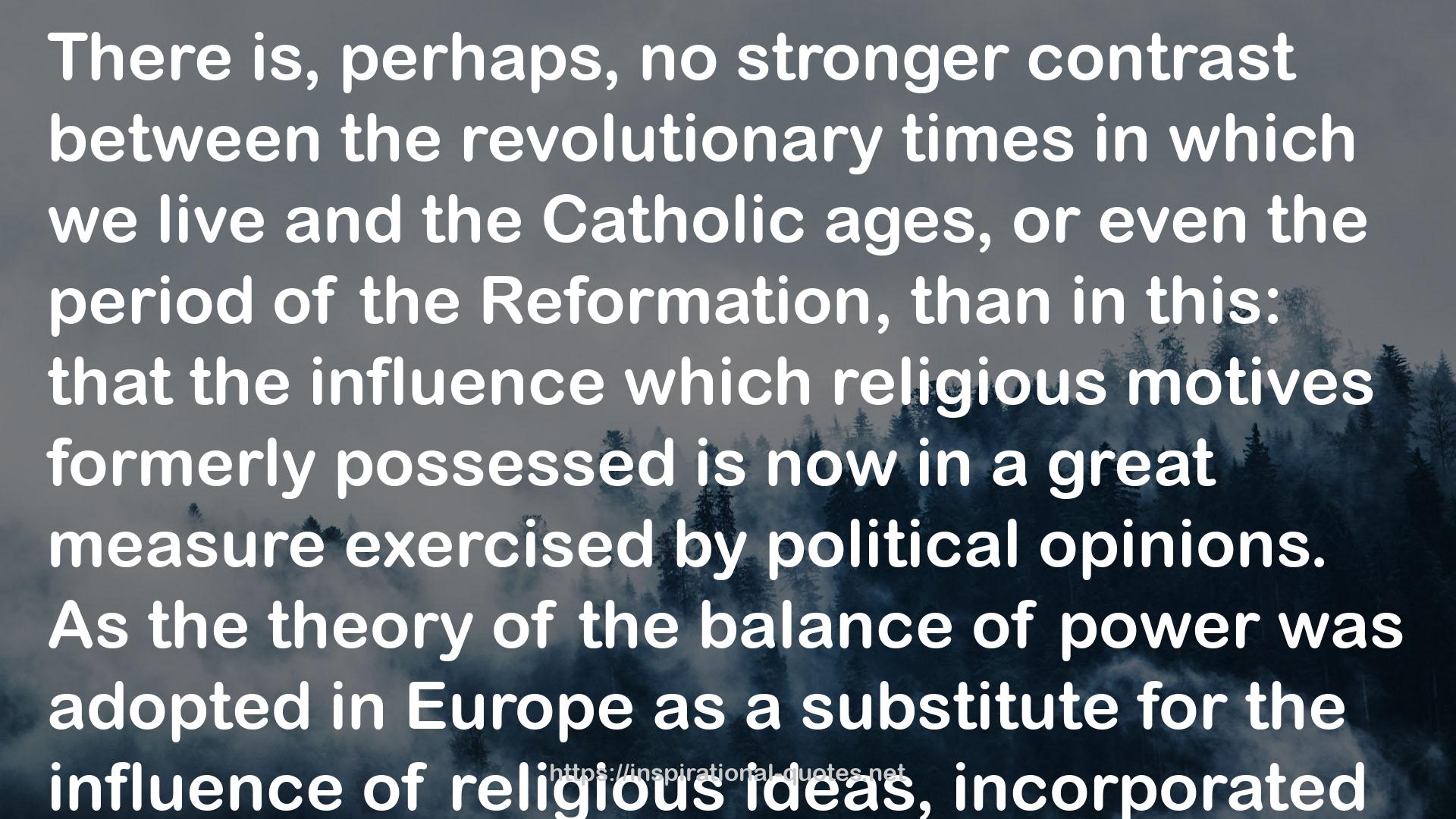" There is, perhaps, no stronger contrast between the revolutionary times in which we live and the Catholic ages, or even the period of the Reformation, than in this: that the influence which religious motives formerly possessed is now in a great measure exercised by political opinions. As the theory of the balance of power was adopted in Europe as a substitute for the influence of religious ideas, incorporated in the power of the Popes, so now political zeal occupies the place made vacant by the decline of religious fervour, and commands to an almost equal extent the enthusiasm of men. It has risen to power at the expense of religion, and by reason of its decline, and naturally regards the dethroned authority with the jealousy of a usurper. This revolution in the relative position of religious and political ideas was the inevitable consequence of the usurpation by the Protestant State of the functions of the Church, and of the supremacy which, in the modern system of government, it has assumed over her. It follows also that the false principles by which religious truth was assailed have been transferred to the political order, and that here, too, Catholics must be prepared to meet them; whilst the objections made to the Church on doctrinal grounds have lost much of their attractiveness and effect, the enmity she provokes on political grounds is more intense. It is the same old enemy with a new face. No reproach is more common, no argument better suited to the temper of these times, than those which are founded on the supposed inferiority or incapacity of the Church in political matters. As her dogma, for instance, is assailed from opposite sides,—as she has had to defend the divine nature of Christ against the Ebionites, and His humanity against Docetism, and was attacked both on the plea of excessive rigorism and excessive laxity (Clement Alex., Stromata, iii. 5),—so in politics she is arraigned on behalf of the political system of every phase of heresy. She was accused of favouring revolutionary principles in the time of Elizabeth and James I., and of absolutist tendencies under James II. and his successors. Since Protestant England has been divided into two great political parties, each of these reproaches has found a permanent voice in one of them. Whilst Tory writers affirm that the Catholic religion is the enemy of all conservatism and stability, the Liberals consider it radically opposed to all true freedom. "
― John Emerich Edward Dalberg-Acton , The History of Freedom and Other Essays
